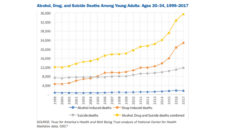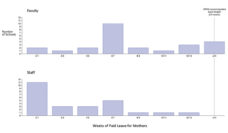We can only hope that one result of the coronavirus pandemic will be to reinforce the need to provide health insurance coverage to all Americans. This is just as important for college students as it is for anyone else. Insurance coverage helps direct students to care, alleviates stress, and facilitates keeping them in school. Student coverage benefits the university, and it’s good for the entire health care system as young people help to stabilize the risk pool.
A pandemic like Covid-19 also reminds us that insurance coverage is a socially constructed dividing line that can leave many infected people feeling they have nowhere to turn, adding to the stress already faced by being uninsured.
Back in fall 2014, my colleagues and I worked on an Obama-era effort to recruit students at the City University of New York (CUNY) into state marketplace plans. We had virtually no lead time and limited funding, but we implemented a campaign at three Bronx campuses which included on-campus tabling, social media outreach, and faculty-student engagement. Professional insurance “navigators” were available to enroll people into marketplace plans.
The results were disappointing. Only four joined a commercial marketplace plan and 29 joined Medicaid (free) or New York’s Medicaid Essential plan ($20 per month).
We wondered: was insurance important to the students? Did they consider it more of a financial concern or a health issue? What would an effective social marketing campaign look like and what messages might work? With funding from a university grant, my team and I used qualitative methods to explore these questions in spring 2017. We conducted four student focus groups (8-10 students each, N=31) and six in-depth interviews with key informants involved in on-campus university-wide insurance enrollment programs.
What did we find? Students value health insurance. Contrary to what may be said about the “invincible” generation, students in this public university system take their education seriously and are concerned about what may get in the way of their ambitions. CUNY students, around 40 percent of whom are first generation college students, are often leaders in their families and communities. They told us that staying healthy is a responsibility. One said, “not only are you helping yourself, but you’re helping the individuals around you, because they want you, they support you, they love you.” This underscores the leadership role that first generation college students often play in their families and their communities.
It is even more important in the age of the coronavirus that students have coverage. Universities can, and should, take simple measures, even when colleges don’t require coverage.
The complicated process of acquiring insurance was clearly a barrier as health insurance literacy was a common theme. One student said her lack of understanding causes her anxiety, and she suggested insurance literacy courses begin as early as high school.
When we asked students about the emotions they associated with insurance, they told us peace of mind, security, prevention, and avoiding financial hardship. Corroborating findings from prior studies, many students thought of health insurance as a money issue as much as a health issue.
Students shared strategies for coping without insurance, including herbal alternatives and other forms of self-treatment. One recounted a sibling “riding out” a urinary tract infection for more than six weeks. Another said an undocumented friend “wears so many layers in the winter just to not get sick.”
Today’s urban universities reflect the increasing racial, ethnic, and income diversity within the United States, and these institutions should not be afraid to highlight social services and insurance assistance. Students place a high value on health and health insurance; however, complexity often blocks coverage. The experience of being on Medicaid did not seem to be a stigmatizing as we hypothesized.
And yet, many students qualify for Medicaid but remain uninsured. This should not happen, as the benefits of health insurance extend beyond the student to their families, communities, and the university itself. It is even more important in the age of the coronavirus that students have coverage. Universities can, and should, take simple measures, even when colleges don’t require coverage. These include opting students in rather than out, cutting complexity, as well as offering and aggressively marketing affordable options to them.
Photo by Annie Spratt on Unsplash














